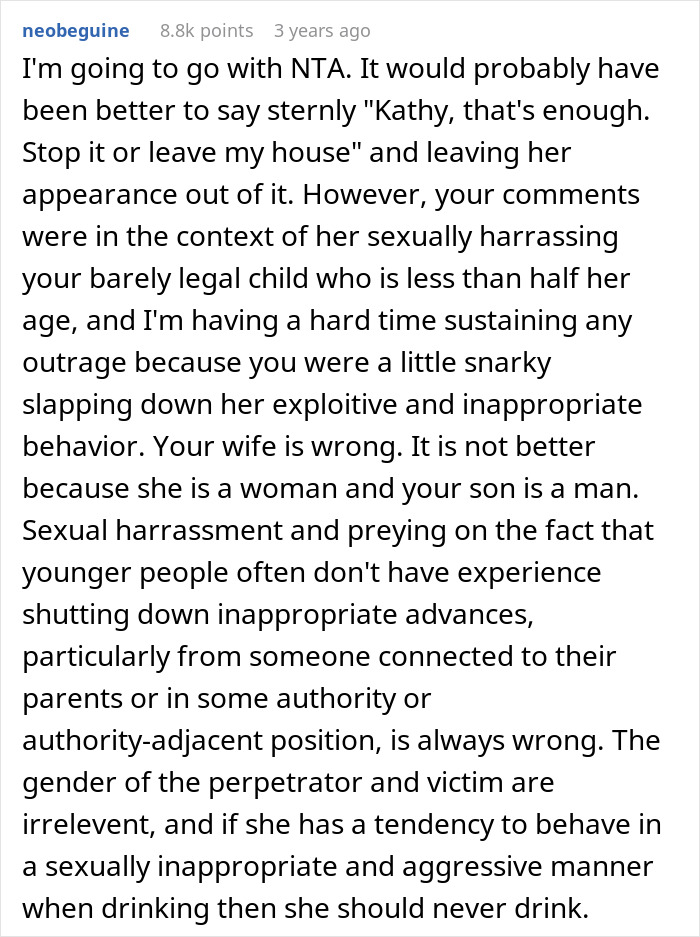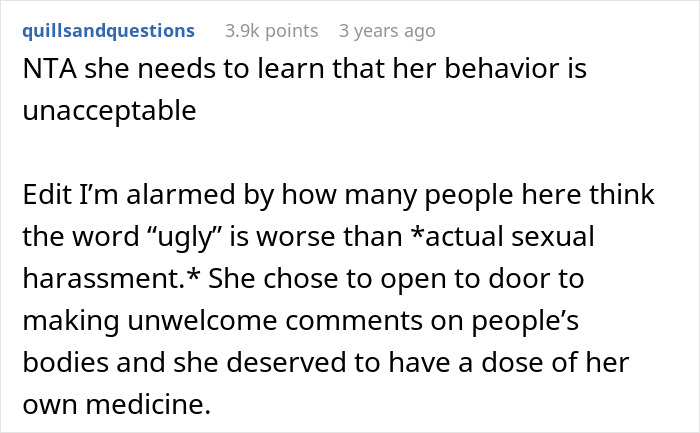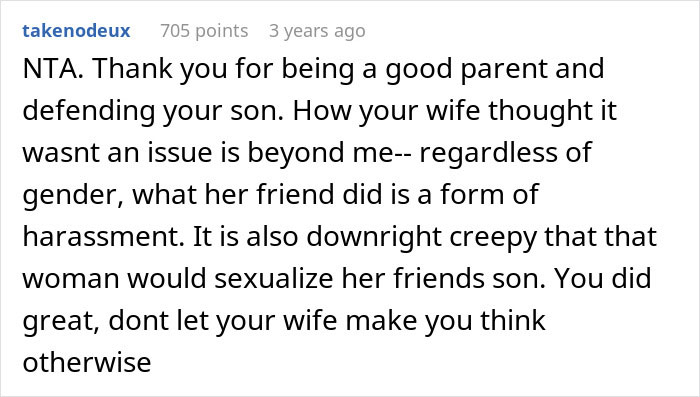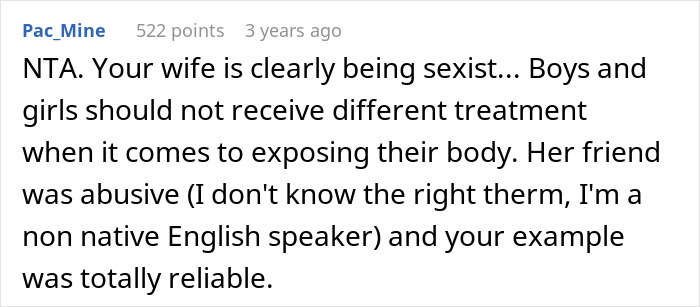‘No’ means ‘no,’ no matter who says it. If the person you’re trying to flirt with is visibly uncomfortable because of your advances, you need to step back and reevaluate your life. Immediately. Unfortunately, some people ignore these personal boundaries.
One anonymous dad shared how he was forced to step in and rebuff his wife’s tipsy friend’s advances on their teenage son. However, he felt like he may have gone slightly overboard with how he approached the situation, so he turned to the AITA online community for their verdict. Read on to see what the internet had to say about the dad rushing in to protect his son.
It is extremely uncomfortable when someone makes unwanted advances toward you

Image credits: vadymvdrobot/Envato elements (not the actual photo)
An anonymous dad stood up for his teenage son, who was being harassed by an older woman
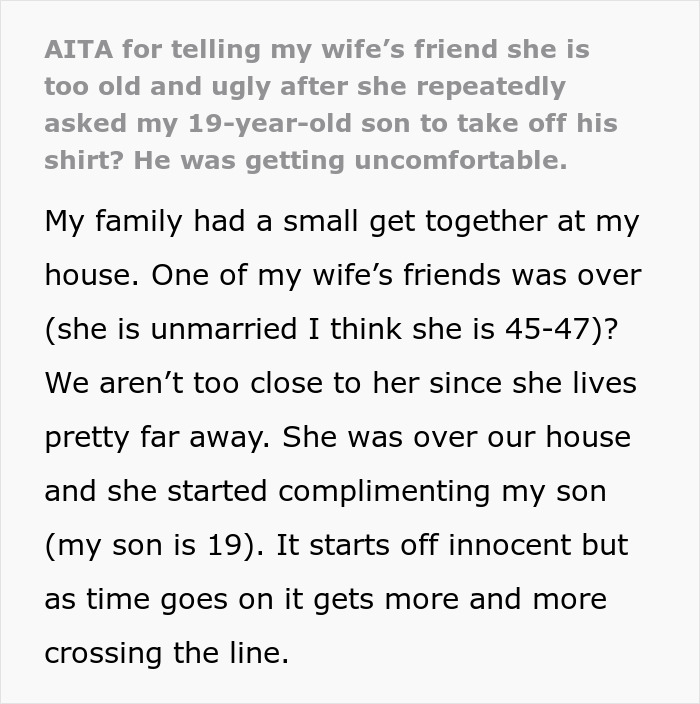
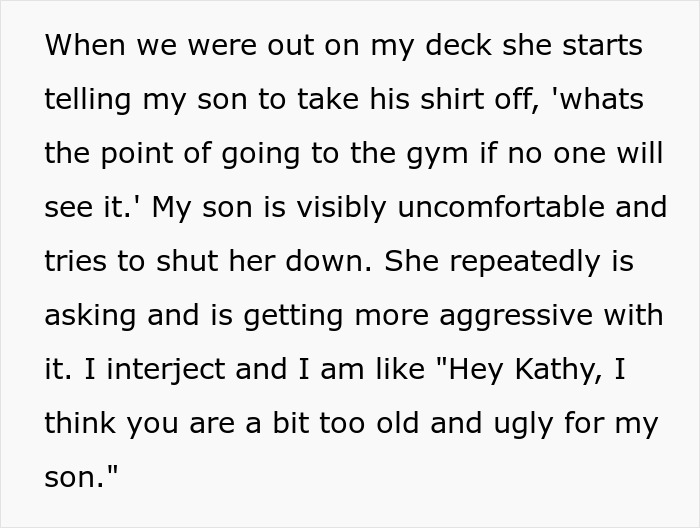


Image credits: halfpoint/Envato elements (not the actual photo)


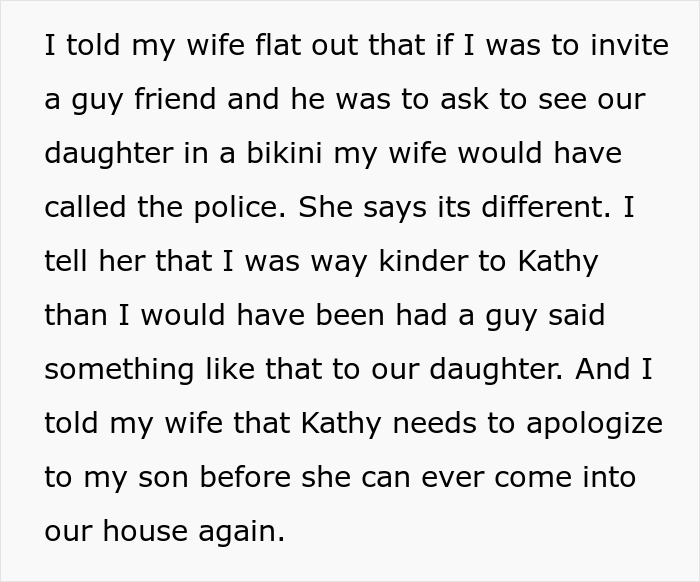

Image credits: throwDad224
Victims of harassment often have to deal with inappropriate comments, both overt and subtle

Image credits: Gary Barnes/Pexels (not the actual photo)
The vast majority of readers thought that the dad did nothing wrong by calling out the older woman’s aggressive attempts at ‘flirting’ with the 19-year-old. She couldn’t take the teen’s subtle hints that he wasn’t interested.
However, some internet users thought that the dad could have gone about the entire situation differently. They felt that he should have called out the woman’s behavior differently, focusing on the main issue at hand: that she was harassing his son. Her age and appearance had nothing to do with her awful behavior.
In other words, the dad could have used the awkward situation to teach his son about the right way to stand up to harassers. Though he showed that he was willing to do anything to protect his son, he might have set a wrong example on how to tackle future situations like this.
Standing up for yourself and calling out wrong behavior shouldn’t mean insulting someone’s appearance. Of course, that’s easier said than done. It’s very likely that the dad reacted instinctively when he saw what was happening. There was probably very little time to craft the ‘perfect’ strategy here.
In short, he’ll probably need to have a few heart-to-heart conversations with his son to explain what happened and what he can do in the future to stay safe. Unfortunately, the author’s account got suspended, so we were unable to get in touch with him for further comment.
Survivor advocate Kathryn Kosmides from ‘Helping Survivors’ notes that sexual harassment, a form of discrimination, is a common issue for people “of all genders and sexual orientations.”
Some signs of harassment include unwanted sexual or romantic advances, as well as suggestive comments. Among other common signs are negative comments on the basis of a person’s sex or gender, unwanted touching, requests for sexual favors, and demanding different duties in the workplace based on someone’s sex or gender.
Perpetrators often ignore any and all personal boundaries

Image credits: RDNE Stock project /Pexels (not the actual photo)
In terms of verbal harassment, you should be on the lookout for perpetrators making inappropriate comments. In some cases, they worsen over time. However, victims of harassment can be traumatized even due to subtle comments.
“While a few polite comments about clothing or a new hairstyle might not constitute sexual harassment, personal comments about appearance, including body type, weight, or specific features, often indicate harassment. Harassment also occurs when the perpetrator continues to make those comments despite a request to stop,” Kosmides explains.
Another often-seen tactic that perpetrators use is asking questions about the victim’s personal life, including their sexuality and sexual activities.
“If you ask someone to stop flirting and it continues, or someone makes extreme or unwanted advances, it is harassment. Unwanted advances could include large romantic gestures like expensive gifts, loud gestures of love or attachment, and constant flirting,” the survivor advocate shares.
Some perpetrators try to ‘hide’ their advances by pretending they’re just ‘joking’ by asking for favors. Others might offer quid-pro-quo trades openly.
Meanwhile, non-verbal harassment includes leering, unwanted touching, sharing explicit material, and digital stalking.
The internet had very different reactions to the story. Some folks thought that everyone was in the wrong here

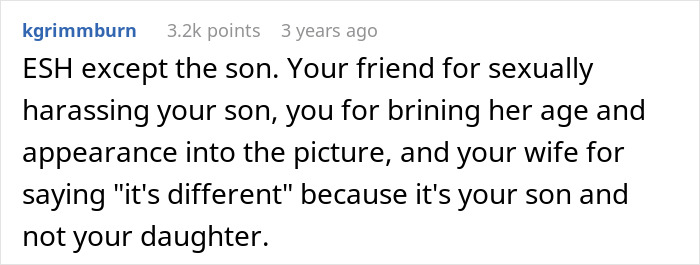
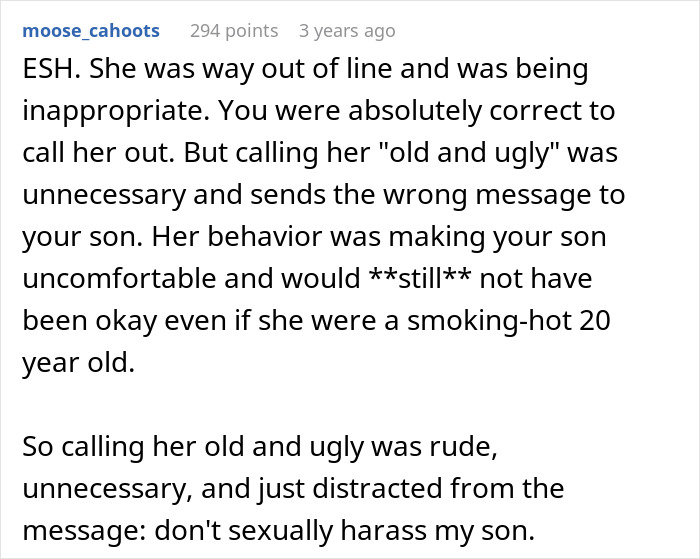
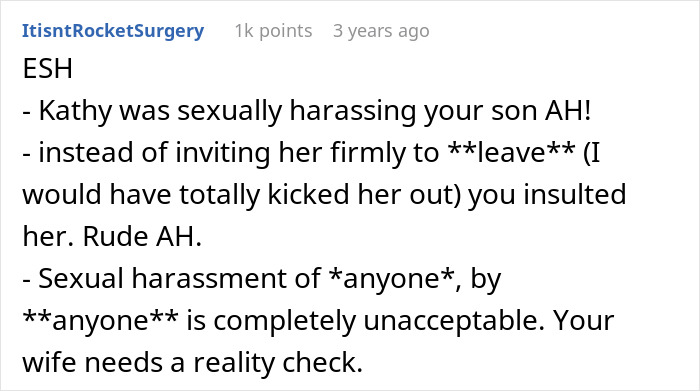
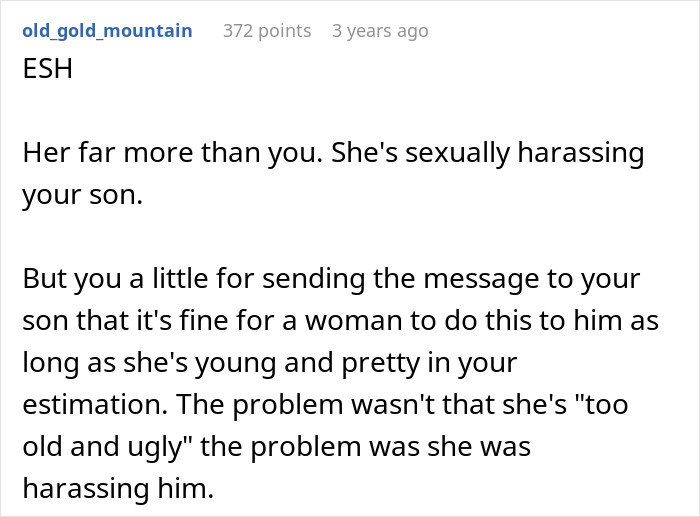
Others, however, stood in support of the way the dad handled the entire encounter

